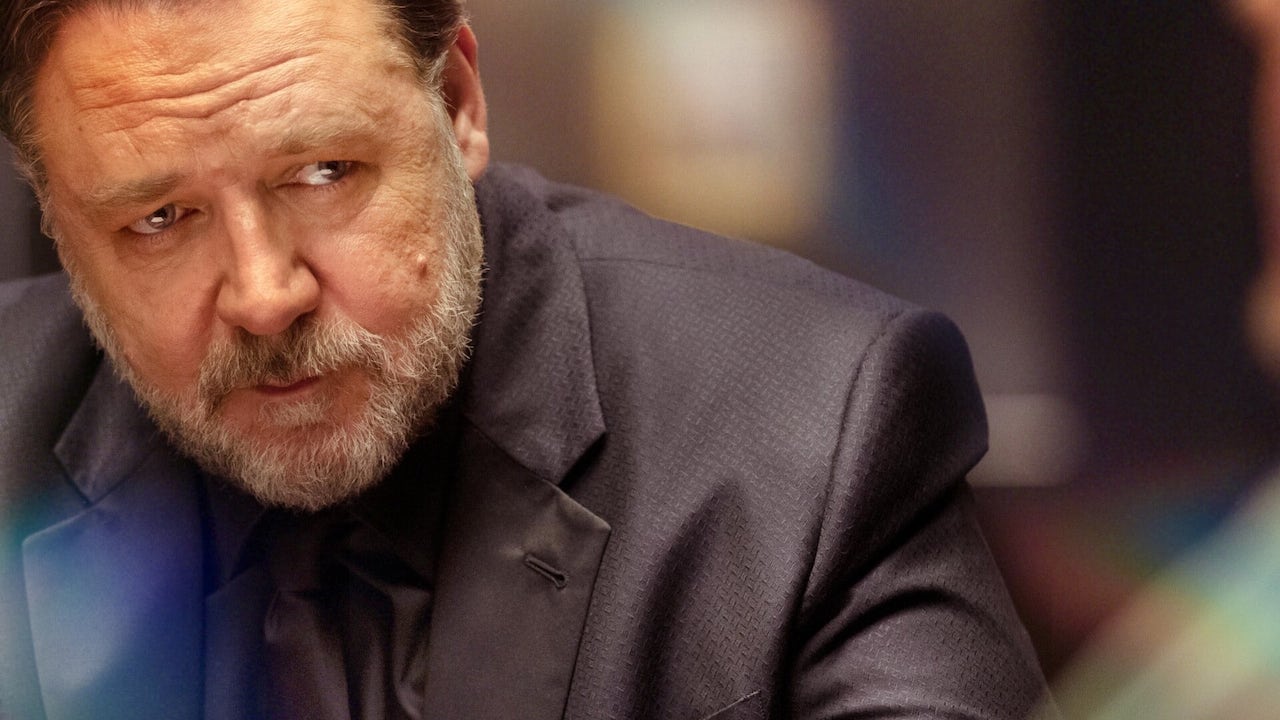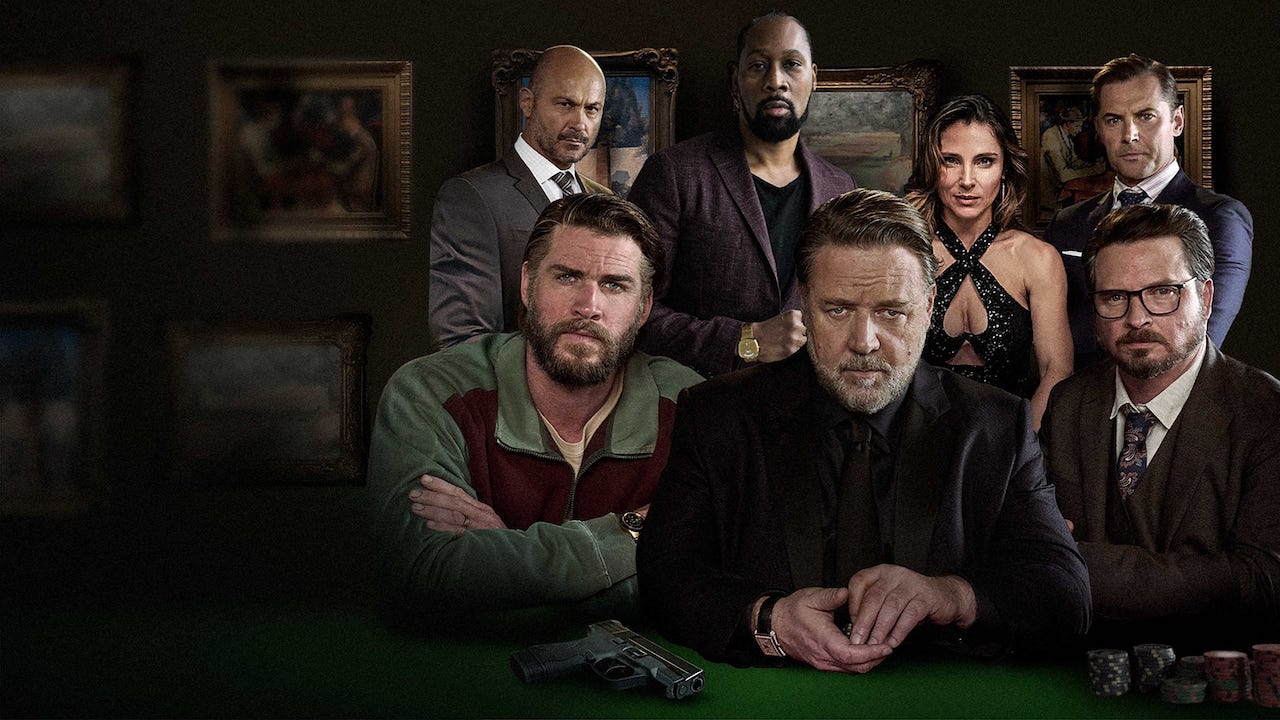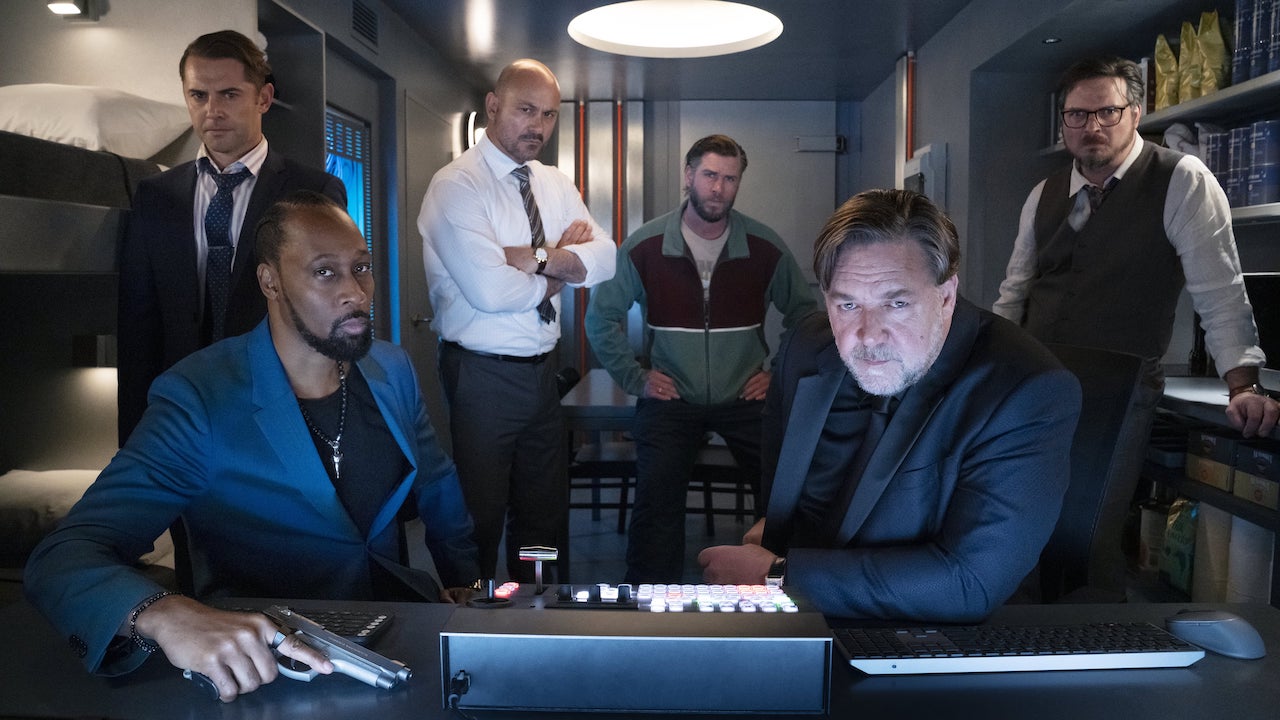Russell Crowe doesn’t play his cards right in self-indulgent mess Poker Face

“Self-important, stodgy, and clearly convinced of its own gravitas”: not the ideal description leading man and director Russell Crowe was probably hoping for with his Stan original movie Poker Face. Here’s Travis Johnson’s disapproving review.
Let’s get the poker pun out of the way first. There have been plenty of column inches lately devoted to the story that Russell Crowe went all-in on his second directorial effort, Poker Face. He took over the reins at the last minute, guaranteeing production when it looked like the project would collapse (and fair play: good on him). He rewrote the script, took the lead role, even played on the soundtrack. The film is, beyond the shadow of a doubt, a Russell Crowe Joint.
But looking at the final result, perhaps he should have folded. Crowe is Jake Foley, a tech billionaire and avid gambler facing a daunting medical diagnosis who decides to get his old friends together for one last game of poker at his palatial mansion. There’s business partner Andrew (RZA), boozer Mike (Liam Hemsworth), author Alex (Aden Young), and politician Paul (Steve Bastoni).
He spots them all a five-million-dollar stake, and you just know this is going to be one of those nights where old grievances are addressed and everyone’s dirty laundry is aired, not least because Jake took both some weird advice and a powerful hallucinogen from an old guru (a baffling cameo from Jack Thompson) prior to the game.
However, a spanner finds its way into the works in the form of a coven of criminals (Paul Tassone, Matt Nable, Benedict Hardie) who want to rob Jake’s mansion of its art treasures, and our self-indulgent The Big Chill-style “what is life anyway?” movie pivots into home invasion action thriller territory.
Except that’s not quite what happens. Indeed, it’s hard to even summarise Poker Face fairly without burning through the word count. The first act stretches interminably, what should be the centrepiece—the poker game—adds up to little, the secrets and revelations that come to the fore are deeply cliched and uninteresting. The home invasion also fails to generate even a skerrick of tension. Nothing works in this film. It’s pushing in too many directions, trying to encompass too many disconnected themes, and ultimately fails to dramatise any of them effectively.

It’s a wildly self-indulgent exercise. Crowe keeps himself at the centre of the frame, narratively speaking, even going so far as to rumble out a voiceover to try and stitch together the film’s disparate elements but fails to give any sense of interiority to his character. It’s incredible that we can spend so much time with this man, even flashing back to his childhood, and get zero sense of who he is and what he wants, except that he’s lived a life of insane luxury and is sad that it’s coming to a close.
All else aside, it is remarkably solipsistic to push out a movie about a troubled billionaire and expect ordinary punters to give a damn at a time when wealth inequality and rampant inflation are the pressing issues of the day. Perhaps it’s just a victim of poor timing, but Poker Face feels even more tone deaf than Palm Beach, another recent Australian film by an actor-turned-director about how tough it is to be incredibly wealthy.

But even severed from the current clime and taken on its own merits, Poker Face fails to impress—Palm Beach at least made being rich look fun. By contrast, Crowe’s effort is self-important, stodgy, and clearly convinced of its own gravitas. But there’s nothing here: no insight into the human condition, no tension, no plot worth recounting, no climactic catharsis.
Perhaps, on a metatextual, conceptual level, the idea was to bluff on an empty hand, in which case: bravo. But that doesn’t add up to a film worth watching.


















